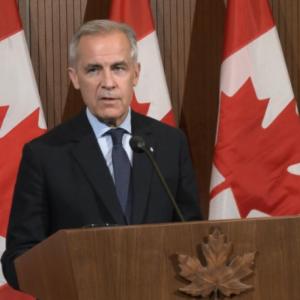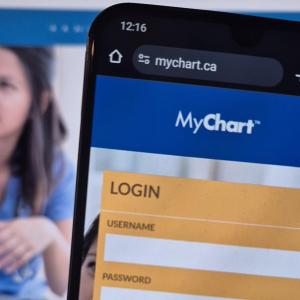The Health Data Imperative: Why Canada’s Health Future Depends on Secure Interoperability
The fragmentation of Canada's health system is not just inefficient — it’s causing unintended harm, hindering innovation, and costing an estimated $2 billion annually.
At the point of care, disconnected data has serious consequences, putting lives at risk and adding stress to an overwhelmed system.
This lack of connectivity also undermines Canada’s ability to advance its leadership in innovative research and development. Prioritizing interoperability would strengthen Canada’s position and enable growth in Canada’s life sciences sector, a sector that contributed $18.4 billion in economic activity in 2022.
The Stakes for Canadians
Connected health data isn’t just about timely, evidence-based care, it also influences which innovative medicines Canadians can access. Analyzing connected data informs access decisions by providing real-world evidence to evaluate treatments. Without this infrastructure, systems stall, and patients navigate risk without support. Diagnostic delays, preventable errors, and communication gaps are common, and can be life-threatening.
When patients and providers have the information they need, outcomes improve, leading to better diagnoses, fewer readmissions, and higher-quality care.
The Burden for Patients
Kerri Beirnes knows these challenges firsthand. As a caregiver and advocate, she manages the complex care of her son Nolan, who lives with spinal muscular atrophy (SMA). Since his diagnosis, she and her husband have managed every detail across disconnected hospitals and providers.
“It’s like a whole other job to be the keeper of all that information,” says Beirnes. “You have to re-share his story, diagnosis, data … everyone has their own system.”
For Kerri, connected health data isn’t just about convenience, it’s key to better treatment access. “The most hopeful and beneficial thing for the SMA community is integrated health data and combining that to gather real-world evidence - that’s the biggest chance for the broadest access to treatment,” she explains.
She notes that in Canada, where only Quebec currently offers SMA treatment for adults over 25, improving the way health data is collected, connected, and accessed could be instrumental in working with Canada’s public payers to help close the gap for patients without public access to available treatments.
“The hope is access to treatment for all, supported by real-world data that reflects the full patient experience. And the hope is always for a cure, because neuromuscular research has come so far.”
Frontline Care Suffers
When physicians don’t have access to a patient’s lab tests, allergies, or full history, the risk of making errors or providing substandard care increases. 92 per cent of health care providers agree that interoperability would enable safer patient care with more complete, timely, and accurate information.
Strikingly, only 20 per cent of Canadians have a complete view of their health records.
Dr. Ewan Affleck, a physician and digital health systems expert, has seen how information gaps compromise care quality and increase errors.
“The risk of harm increases when records are incomplete, and time wasted hunting for information delays care,” Dr. Affleck explains. “As a physician, this wears on you, as you see public resources drained and innovation stalled while patients suffer.”
Guidance for a way forward is available. The Data Disarray report provides 20 recommendations for optimized data function, from accountability and governance to health data literacy. He shares, “Evidential research is being conducted to raise awareness and encourage action on this deeply rooted issue across the country.”
Trust Must be Maintained
Health data must be collected with a strong focus on privacy and trust. Building health data literacy among providers, leaders, and the public is foundational. By helping Canadians understand how their data is collected, used, and protected, they become more empowered in their care and in advocating for connected data.
By understanding the types of health data and clearly communicating privacy safeguards, we can better weigh the risks and benefits of data sharing — and the consequences of not sharing — across sectors.
Collaboration is the Answer
Everyone needs to be at the table to drive meaningful change: public health, life sciences, patients, researchers, government, Indigenous Peoples and more. Whether treating a patient, receiving care, conducting research, or building AI tools, we all rely on connected data. Only through collaboration can we foster progress toward full interoperability.
Rishma Abdulhusein, Squad Lead for Real World Data Health System Transformation at Roche Canada, emphasizes that interoperable systems support improved access to innovative medicines for patients — a connection that often gets left out of the data conversation. “Interoperable systems are essential,” she shares. “They allow us to better understand patient benefit over time and using this understanding, support more informed decision-making on treatments, at every level.”
When industry can access de-identified, real-world data through clear pathways, it accelerates research, expands access to medicines, and keeps Canada competitive. “We need mediated access to maintain a clear line of sight into how our innovations impact communities and deliver the greatest patient benefit,” she explains.
Public-private collaboration is essential to building sustainable, connected systems.
Change Starts Now
Progress is underway through government action and partnerships. Through the efforts of the Pan-Canadian Health Data Strategy, and the work of Networked Health, a growing community of passionate individuals from across the health sector are working together to improve healthcare by advocating for principle-based health data design and use. These efforts signal a growing recognition that Canada’s health system can’t wait.
Health data must follow the patient securely, consistently, and across every point of care. When leveraged effectively, it fuels research, drives economic growth, and positions Canada as a global leader.
In 2025, connected data isn’t optional. It’s a public health imperative.
---
Evelyn Pyper is a Health Data Strategy Lead at Roche Canada, and a DPhil student in Evidence-Based Health Care at the University of Oxford.
This sponsored content was produced in partnership between Canada Healthwatch and Roche Canada.









